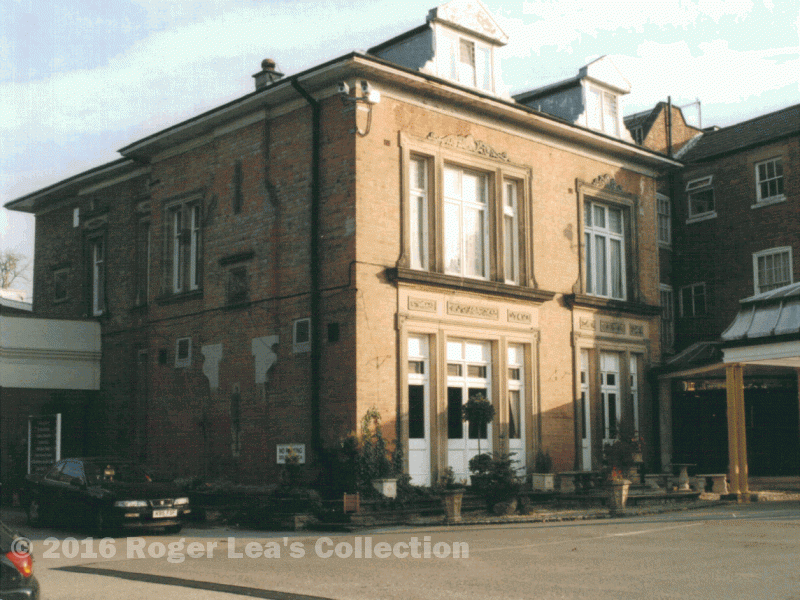Joseph Webster owned the thriving wire mill at Penns, and in 1842 he made his 24-year-old son his partner in the firm. The son, who bore the unusual Christian name “Baron”, had returned to Sutton from university three years previously having decided to work in the mill rather than take up a profession.
Baron Webster soon entered public life, being chosen as Warden of Sutton in 1844, and then another five times in the 1850s. As Warden, he took the lead in settling a dispute with the London and North Western Railway Company over a bond entered into by that company whereby they would pay a penalty of £20,000 if they failed to build a promised railway through Sutton - the railway was never built, but the penalty could not be enforced, and the Warden settled for a figure of £3,000. He could see that the town was growing and needed a proper town hall and offices, so he persuaded his colleagues in the Warden and Society to use the £3,000 to build a new town hall, which opened in 1859. Upper-class Suttonians regarded all this civic energy as rather vulgar, as Miss Holbeche sardonically remarked: “1858, August 15th - Foundation Stone of the Town Hall laid by Mrs. Baron Webster - a high day for the Baron and Baroness.”
In spite of heading the Staffordshire Yeomanry and the First Warwickshire Rifle Corps, being on the Aston Board of Guardians and never missing a day’s hunting, Baron had plenty of energy for his wire-making business. After Websters merged with Horsfalls he worked hard at promoting a new patent wire, persuading the Admiralty to use it in ships’ hawsers, mine-owners to use it in their pit-head gear, and he exhibited at the first International Exhibition in Paris, bringing home Louis Napoleon’s First Class Gold Medal.
Baron was only forty-two when he died, “known and venerated by the entire district from the humblest to the highest”, but just at that time he had run into debt, partly due to his failed attempt to set up a railway company to build the Sutton branch line. When Thomas Lloyd, Mayor of Birmingham and a partner in Lloyd’s Bank, said that “Baron Webster was one of those men who, without any very brilliant parts, by his honesty, worth and courtesy, found his way to the warmest place in our hearts”, the implication is that if he had been brilliant he would have been amassing wealth rather than doing good.
